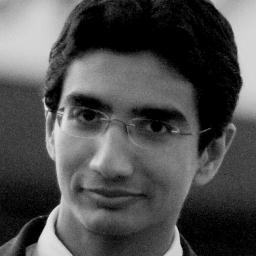“Underlying logic of better relations is on a stronger footing than ever before.”
By Deepak Chitnis
WASHINGTON, DC: With the Indian elections coming to a close this week, and the announcement of victors and losers coming on May 16, the relationship between the US and India has found itself at yet another pivotal junction. As the two democracies continue to re-build their ties after a strenuous 2013, India’s Lok Sabha elections may ultimately have the final word on where the relationship goes in the immediate future.
 Dhruva Jaishankar is a Transatlantic Fellow with the Asia Program of the German Marshall Fund of the United States (GMF). A native of New Delhi, Jaishankar has a B.A. from Macalester College, where he earned his degree in history and the classics, and an M.A. from Georgetown University’s Edmund A. Walsh School of Foreign Service.
Dhruva Jaishankar is a Transatlantic Fellow with the Asia Program of the German Marshall Fund of the United States (GMF). A native of New Delhi, Jaishankar has a B.A. from Macalester College, where he earned his degree in history and the classics, and an M.A. from Georgetown University’s Edmund A. Walsh School of Foreign Service.
He was previously a news writer and reporter for CNN-IBN television, a research assistant in Foreign Policy Studies at the Brookings Institute, and the Program Officer for Asia at the GMF. In his current position, he manages the GMF’s India Trilateral Forum, which is a “twice-yearly strategic dialogue between the United States, Europe, and India,” and is an expert on foreign and security policy in South Asia.
Excerpts from the interview:
Will the make-up of the ruling coalition significantly affect India’s foreign policy with regards to the US, and if so, how?
The constitution of the next Indian government is unlikely to significantly affect relations with the United States. Most parties have expressed, in various ways, their interest in partnering with the United States and it would take a completely unforeseen result for a coalition to form that was explicitly anti-American.
If Modi becomes the new PM, as is widely expected, what will the immediate effects of that be on Indo-S ties?
If handled correctly and with maturity, there is no reason why Indo-U.S. ties should be adversely affected by any change in government. Washington would do well to use the opportunity of the next prime minister’s election to extend an open invitation to visit the United States.
Modi’s past has been mostly ignored in recent weeks by the US – do you see it cropping up again in the future, and further tainting diplomatic ties?
I’m not in a particularly good position to answer the other [that], I’m afraid.
Indo-US relations are at their lowest point in many years – what does each country have to do to really get things going in the right direction, now that India is essentially under new management?
I am not sure if it’s really the case that Indo-U.S. relations are at a low point. As I’ve been writing for some time, the underlying logic of better relations is on a stronger footing than ever before. Some areas, for example defense trade and a new energy partnership, have moved forward in ways few could have imagined. But it’s unclear whether the relationship is getting the constant top-down attention it deserves from either Washington or New Delhi.
That could — and should — certainly change. These energies can be directed in three ways: elevating the economic relationship so that India is among the United States’ closest partners in Asia, clarifying strategic objectives particularly with respect to the Indo-Pacific and India’s western neighborhood, and identifying congruent interests in order to work together on matters of global concern.



